Today, we celebrate the life and legacy of a man who fought tirelessly for justice in our country. Nelson Mandela Day was launched in 2009 in recognition of Madiba’s birthday on 18 July, via unanimous decision of the UN General Assembly. This day is a global call to action for citizens of the world to take up the challenge of spending 67 minutes of their day serving others and thereby following in...
Christmas came early at Cango Wildlife Ranch!
Nothing brings joy like the pitter-patter of new life, which is exactly what the Cango Wildlife Ranch family has been spoilt with this summer! Three animal families have welcomed new life into the world, and the team couldn’t be happier.
Angel wings added to the Valley of Ancients
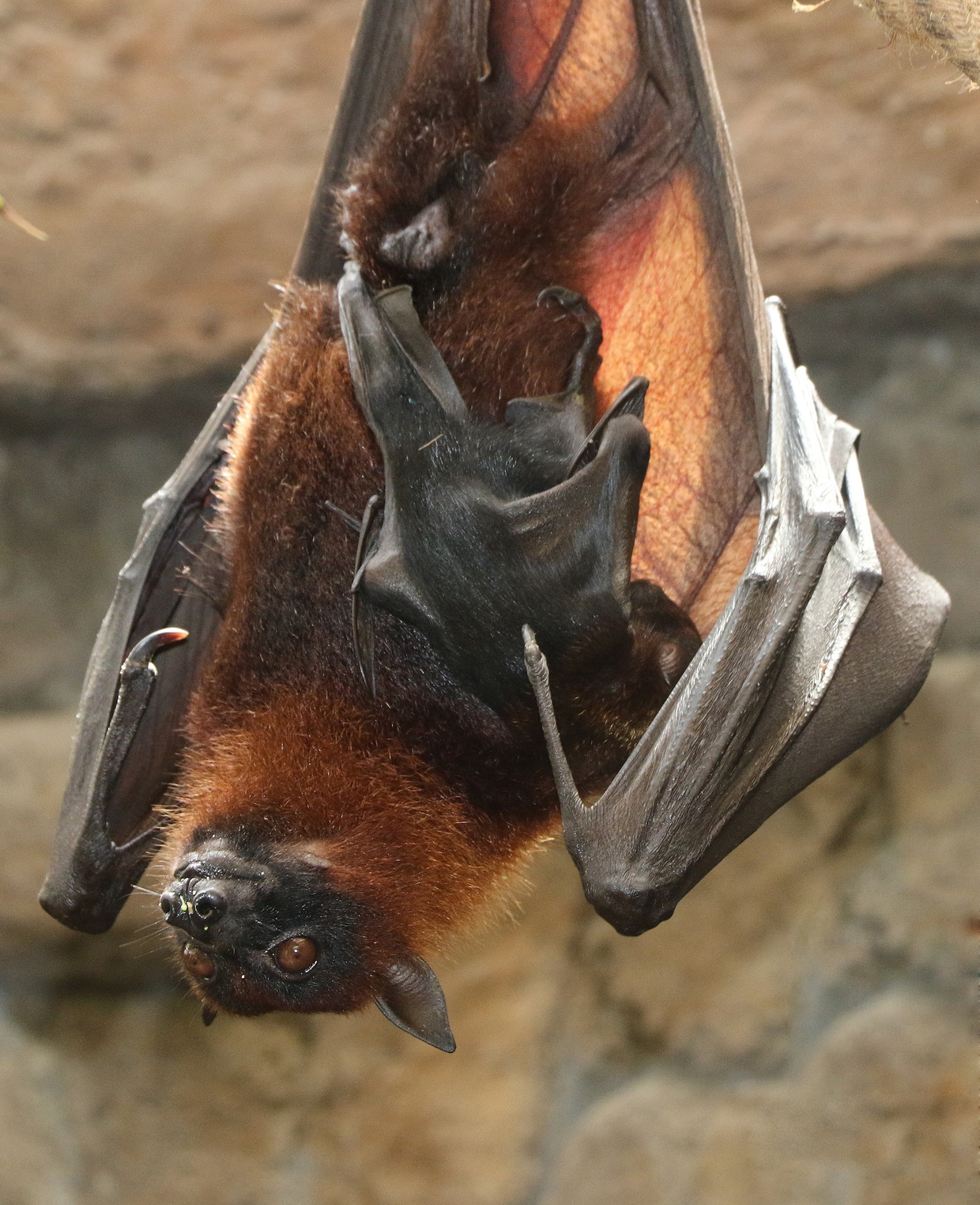 The first celebration came when one of our beloved female Flying fox showed signs of being in labor during an early morning routine check by our animal care team. The species is classified as near-threatened and therefore a birth is always worth celebrating! Natural birthing for these magnificent bats includes the laboring mother hanging upside down, elevated 3 metres in the air. Like with human births, the soon-to-be mom’s water must break. When the team observed that there were no fluids present, they knew she must have been in labor for quite some time.
The first celebration came when one of our beloved female Flying fox showed signs of being in labor during an early morning routine check by our animal care team. The species is classified as near-threatened and therefore a birth is always worth celebrating! Natural birthing for these magnificent bats includes the laboring mother hanging upside down, elevated 3 metres in the air. Like with human births, the soon-to-be mom’s water must break. When the team observed that there were no fluids present, they knew she must have been in labor for quite some time.
Upon closer inspection they noticed a tiny baby bat’s head was visible but was stuck from the chest down. They were both clearly struggling but hope sparked when the baby’s head moved followed by a few blinks and a yawn. Always careful to step in too soon or too late, after an hour’s observation, the animal care team alerted our on-call veterinarian for assistance.
Intervention is always a tough decision, but not when our animal’s lives are at stake. Mommy bats can often become incredibly weak during a long labor and a fall could be detrimental to them both. The animal team leapt into action and safely retrieved the mom and baby and rushed them to the vets emergency room.
An hour later, the travel crate and animal team returned – a baby was safely born, and a mom was made! She even had enough energy to climb right up to her camp of comrades. For a fleeting moment when she was in the group, the team caught a quick glimpse of a tiny flying fox body clinging to its mother’s chest. Drained, but relieved the Animal care team watched the brave mother go about her daily routine with the newest addition to the Valley of Ancients safely tucked under one wing.
Fortunately, beating the odds, both mom and baby are very happy campers and their upside-down smiles sprinkle hope and joy during the holiday season spirit.
Racing against extinction - One perfect cheetah cub at a time
Cango Wildlife Ranch is over the moon to have welcomed five cheetah cubs from proud and glowing couples, Pippa and Oakley and Raven and Pharaoh. Too unreal for words, Pippa gave birth to two, and Raven to three healthy cubs, at the exact same time, on the same day! The two new families are currently residing safely at Cango Wildlife Ranch’s Private Reserve, growing stronger every day. Cheetah cubs are extremely vulnerable during the first couple of months and our team are already on 24-hour watch, making sure they are 100% fine.
Watch this video!
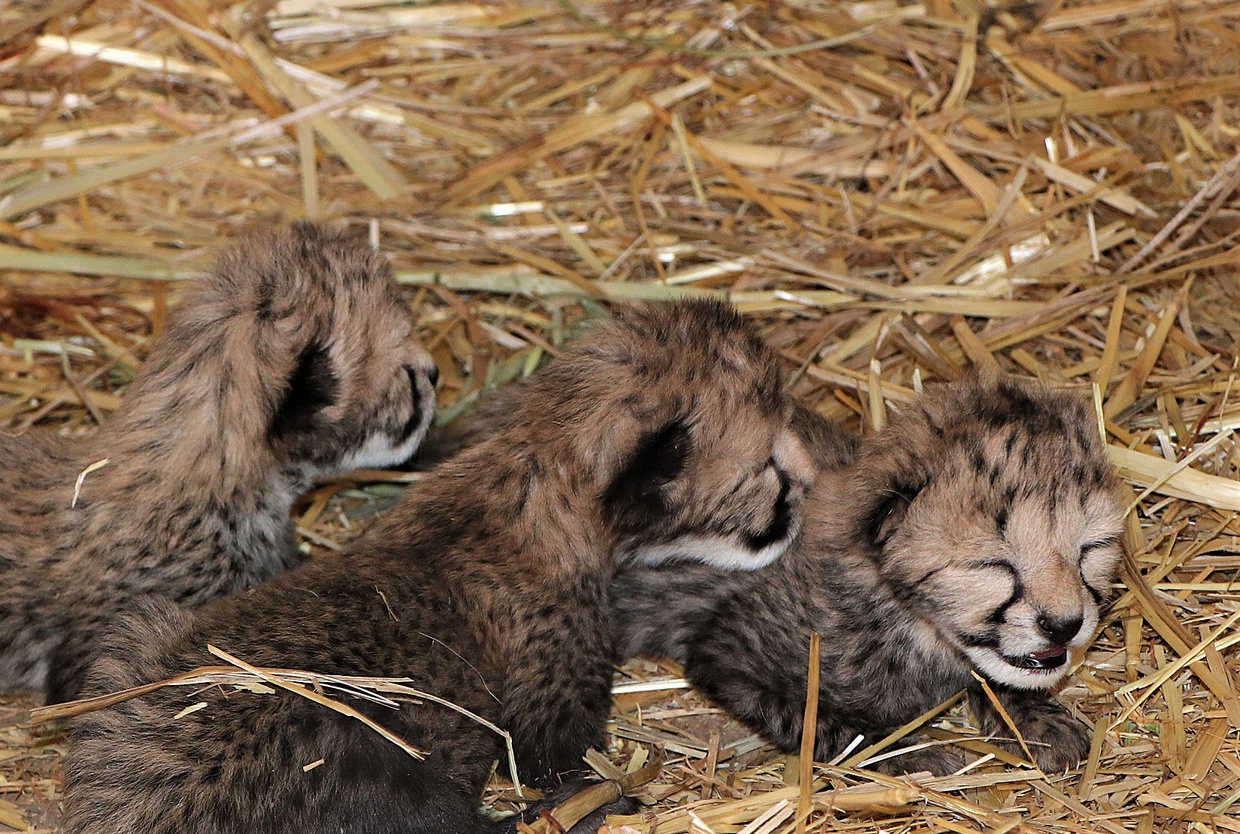 Cango Wildlife Ranch has many reasons to celebrate their births. Having them here contributes to greatly helping the world better understand the species, their needs and their importance in our world. Since the inception of the Cheetah Preservation Foundation in 1988, they have contributed ample data to the global pool of healthy cheetah management practices, research and much-needed education of the species.
Cango Wildlife Ranch has many reasons to celebrate their births. Having them here contributes to greatly helping the world better understand the species, their needs and their importance in our world. Since the inception of the Cheetah Preservation Foundation in 1988, they have contributed ample data to the global pool of healthy cheetah management practices, research and much-needed education of the species.
Classified as vulnerable, and with estimated wild population numbers dwindling below 7100, this species is racing a gruelling race against extinction. Pressure from climate change, hunting by humans, and habitat destruction are dramatically reducing their wild populations. Cheetahs have a low reproductive success rate meaning that, as a species, they are not always able to successfully reproduce. With fewer offspring, the population can neither grow nor adapt to changes in their ever-changing, and human encroached wild environments.
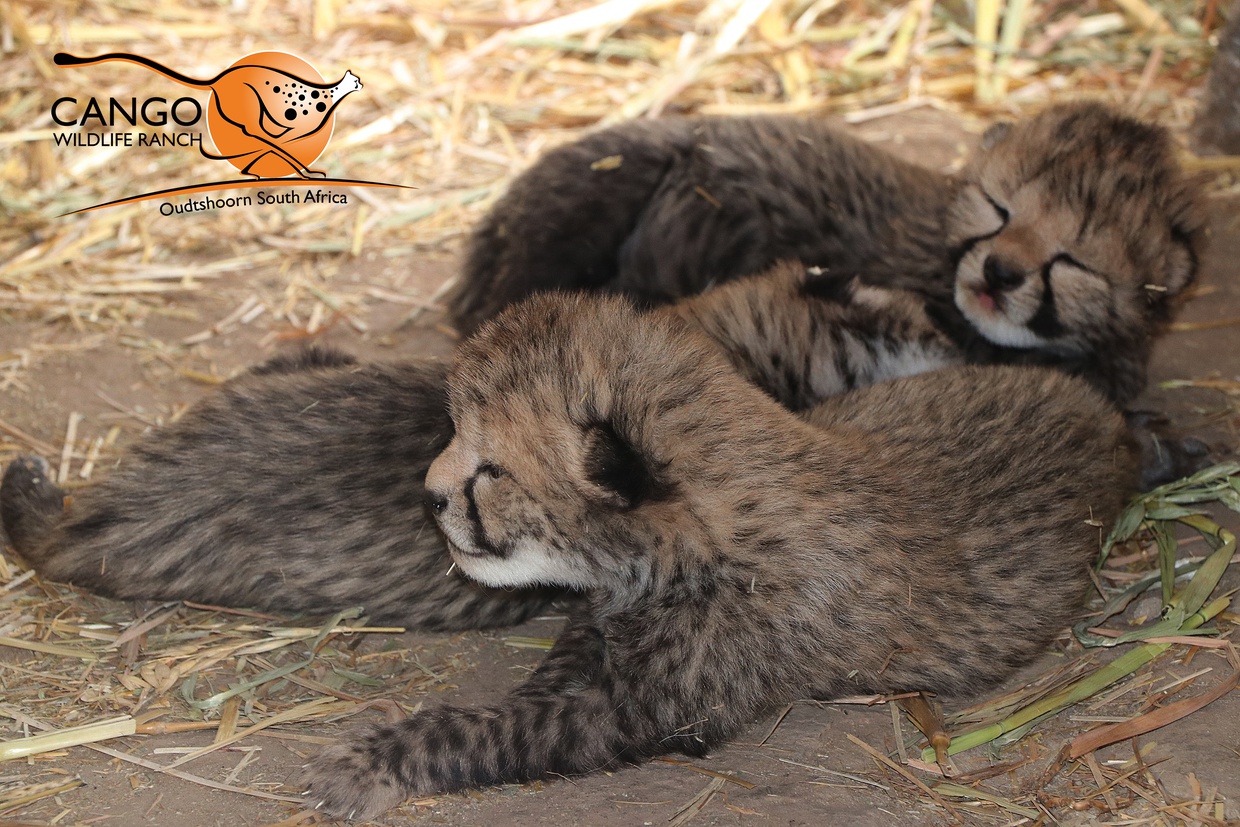 Cheetahs are also well-known for facing problems from their own genes, which is specifically what Cango Wildlife Ranch is working to rectifying. The reason? Genetic analysis of wild cheetahs shows that the species have survived at least two bottleneck events, one, over 100 000 years ago, and another between 10 000 – 12 000 years ago. In biology, a bottleneck event occurs when something happens to sharply reduce the size of the population. The result is that the few remaining individuals end up mating with relatives; which in any species, is called inbreeding. This reduces the size of the gene pool and leads to problems such as decreased genetic variability and the persistence of potentially harmful mutations.
Cheetahs are also well-known for facing problems from their own genes, which is specifically what Cango Wildlife Ranch is working to rectifying. The reason? Genetic analysis of wild cheetahs shows that the species have survived at least two bottleneck events, one, over 100 000 years ago, and another between 10 000 – 12 000 years ago. In biology, a bottleneck event occurs when something happens to sharply reduce the size of the population. The result is that the few remaining individuals end up mating with relatives; which in any species, is called inbreeding. This reduces the size of the gene pool and leads to problems such as decreased genetic variability and the persistence of potentially harmful mutations.
The birth of five healthy cheetah cubs, therefore, truly does give us all a reason to celebrate and be jolly this festive season!
Please note:
As per the videos and photos of our cheetah mommy and cubs you’ll notice our mommy is wearing a collar. This is a flea collar that has been recommended by our veterinarian in order to prevent fleas during this dry time of the year.
Further Reading
Today, on 3 September 2021, across South Africa, we celebrate Casual Day. Casual Day is the National Council of and for Persons with Disabilities (NCPD)’s flagship awareness and fundraising project. This annual campaign has been running since 1995! The public’s contribution of R20.00 for a Casual Day sticker entitles them to express their individual interpretation of the yearly theme through their outfits, showing their support for the full inclusion and equity of...
In the midst of trauma, terror and pandemics, there are always heroes who emerge. Beacons of hope who come in all shapes and sizes and help show humanity the way forward. We saw such a (tiny) hero arise…













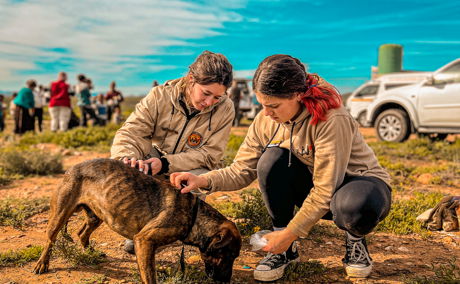
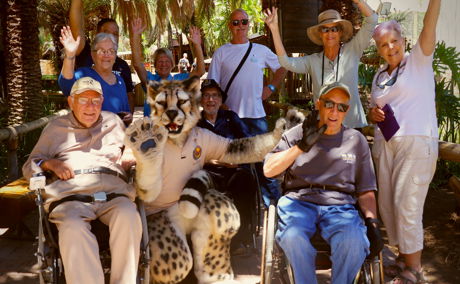
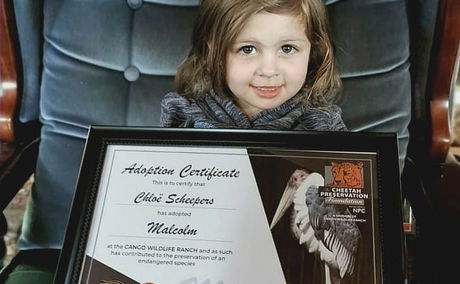
Share This Post